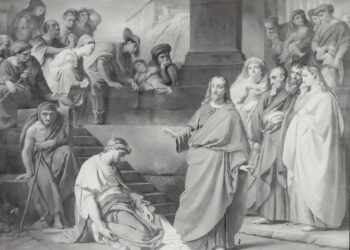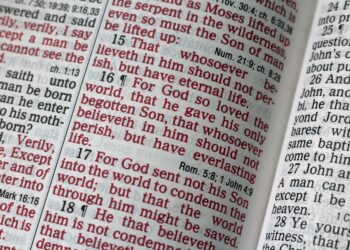The Evolution of Christianity: From Early Christianity to Modern Denominations
Christianity has a rich and complex history that spans over two thousand years. From its humble beginnings as a small, persecuted sect in ancient Rome, it has grown into one of the world’s major religions, with millions of followers spread across different denominations and sects. In this blog post, we will explore the evolution of Christianity, tracing its journey from its early roots to the diverse range of modern denominations we see today.
1. Early Christianity: The Birth of a Faith
Christianity traces its origins to the ministry of Jesus Christ in the first century CE. Jesus, considered by Christians to be the Son of God and the Messiah, preached love, compassion, and forgiveness to the people of Palestine. His teachings attracted a small group of followers, who continued to spread his message after his crucifixion.
The early Christians faced persecution under the Roman Empire, which viewed them as a threat to the established order. Despite the dangers, the followers of Jesus persevered, underground churches sprouted, and communities of believers were formed. The Apostle Paul played a crucial role in spreading Christianity beyond Jewish communities, laying the foundation for its expansion into the Gentile world.
2. The Rise of Catholicism: From Persecution to Dominance
By the fourth century, Christianity had gained significant traction, and Emperor Constantine’s conversion to Christianity marked a turning point for the faith. With Constantine’s support, Christianity transitioned from a persecuted sect to the state religion of the Roman Empire. In 325 CE, the First Council of Nicaea was convened to establish a standardized set of beliefs and doctrines.
The Nicene Creed, formulated at the council, solidified the core tenets of Christianity. This event marks the emergence of Catholicism as the dominant form of Christianity at the time. The leaders of the Roman Church, known as popes, wielded significant influence over religious and political affairs, shaping the course of European history.
3. The Great Schism: Catholicism and Eastern Orthodoxy
As time went on, ideological and doctrinal differences emerged between the Western Latin Church (Catholicism) and the Eastern Byzantine Church (Eastern Orthodoxy). These tensions eventually led to the Great Schism of 1054, which split Christianity into the Catholic and Orthodox branches.
The primary disagreement between Catholicism and Eastern Orthodoxy centered around the authority of the pope and the structure of the church. While the Catholic Church believed in the primacy of the pope as the Vicar of Christ, the Orthodox Church emphasized the conciliar nature of decision-making, with a shared authority among bishops.
4. The Protestant Reformation: A Splintering of Faith
The 16th century brought another significant upheaval in Christianity with the Protestant Reformation. Led by figures such as Martin Luther, John Calvin, and Huldrych Zwingli, this movement aimed to reform the Catholic Church, questioning its practices, doctrines, and authority.
The Protestant Reformation resulted in the creation of various new Christian denominations, each with its own unique beliefs and practices. Lutheranism emerged as the first major Protestant branch, followed by Calvinism, Anglicanism, and the Anabaptist tradition. These reformers emphasized individual interpretation of scripture and the direct relationship between individuals and God, challenging the authority of the Catholic Church.
5. Modern Christianity: A Pluralistic Landscape
The Reformation set the stage for the proliferation of denominations and sects within Christianity. Over the centuries, numerous new movements and branches have emerged, responding to changing social, cultural, and theological contexts.
Today, Christianity is a diverse and pluralistic religion, with various denominations including Baptists, Methodists, Presbyterians, Pentecostals, and many others. Some denominations, like the Anglican Communion, retain close ties to Catholic tradition, while others, like the Evangelical movement, emphasize personal conversion and active evangelism. Each denomination has its distinct beliefs, practices, and forms of worship.
In conclusion, the evolution of Christianity from its early beginnings to the multitude of modern denominations is a testament to its ability to adapt and grow throughout history. Despite the variations in belief and tradition, Christians around the world continue to find inspiration, solace, and guidance in the teachings of Jesus Christ.













